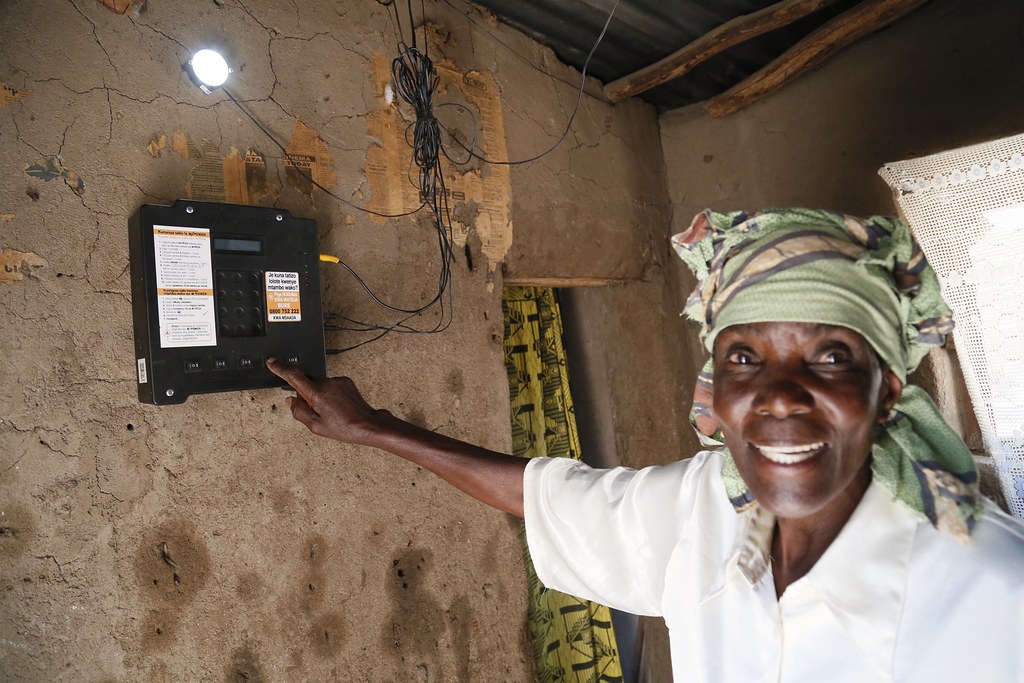Regulatory indicators for sustainable energy: a global scorecard for policy makers
 An increasing number of developing countries – Mexico, China, Turkey, India, Vietnam, Brazil, and South Africa – are emerging as leaders in sustainable energy, with robust policies to support energy access, renewables and energy efficiency, according to this new World Bank Report.
An increasing number of developing countries – Mexico, China, Turkey, India, Vietnam, Brazil, and South Africa – are emerging as leaders in sustainable energy, with robust policies to support energy access, renewables and energy efficiency, according to this new World Bank Report.
 Energy is at the forefront of the development agenda. Recognizing energy's vital role in development and prosperity, the world has committed to Sustainable Development Goal 7 to "Ensure access to affordable, reliable, sustainable and modern energy for all" as one of 17 goals for 2030, as well as to dramatically increase energy efficiency and the use of renewable energy. The historic climate change agreement in Paris in 2015 also draws attention to the essential scale-up of clean energy to attain a 2 degrees C world, with energy featuring prominently in many countries' Nationally Determined Contributions. Achieving these global energy goals calls for more than a trillion dollars of investment annually. Reaching the 2030 targets set by Sustainable Energy for All (SEforALL) - universal access to electricity and clean cooking fuels, doubling the rate of improvement of energy efficiency, and doubling the share of renewable energy - requires an unprecedented scale-up of both public and private finance. Investment in sustainable energy is affected by many factors, including market size, country risk, and financial markets, to name but a few. But a country's policies and regulations also matter, and they are directly under the control of government. This report—based on a new and comprehensive global policy scorecard called Regulatory Indicators for Sustainable Energy (RISE) - answers two important questions. Are policymakers around the world truly rising to the challenge posed by the new global sustainable energy agenda? Where is further action most critically needed?
Energy is at the forefront of the development agenda. Recognizing energy's vital role in development and prosperity, the world has committed to Sustainable Development Goal 7 to "Ensure access to affordable, reliable, sustainable and modern energy for all" as one of 17 goals for 2030, as well as to dramatically increase energy efficiency and the use of renewable energy. The historic climate change agreement in Paris in 2015 also draws attention to the essential scale-up of clean energy to attain a 2 degrees C world, with energy featuring prominently in many countries' Nationally Determined Contributions. Achieving these global energy goals calls for more than a trillion dollars of investment annually. Reaching the 2030 targets set by Sustainable Energy for All (SEforALL) - universal access to electricity and clean cooking fuels, doubling the rate of improvement of energy efficiency, and doubling the share of renewable energy - requires an unprecedented scale-up of both public and private finance. Investment in sustainable energy is affected by many factors, including market size, country risk, and financial markets, to name but a few. But a country's policies and regulations also matter, and they are directly under the control of government. This report—based on a new and comprehensive global policy scorecard called Regulatory Indicators for Sustainable Energy (RISE) - answers two important questions. Are policymakers around the world truly rising to the challenge posed by the new global sustainable energy agenda? Where is further action most critically needed?
